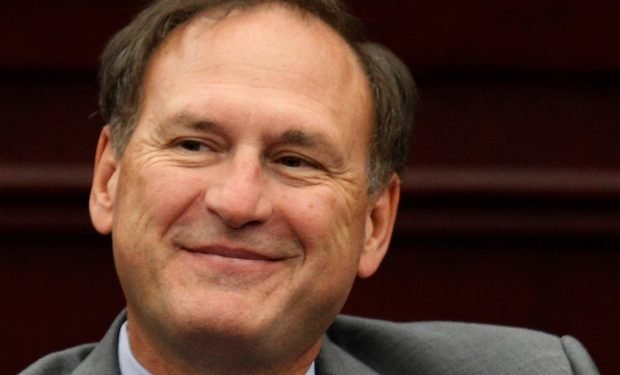An investigative report from the publication ProPublica looking for what critics label influence peddling at the Supreme Court examines the extramural relationships of Justice Samuel Alito — and how they may be affecting various rulings at SCOTUS.
Alito was made aware of the ProPublica report before it was published and pre-emptively attacked it in a Wall Street Journal opinion piece, in which, among other protests, Alito denies having been served wine that costs $1,000 a bottle during a fishing trip to Alaska allegedly paid for by a wealthy acquaintance.
Supreme Court Justice Samuel Alito took a luxury fishing trip to Alaska with billionaire Paul Singer, whose hedge fund then had repeated business before SCOTUS over the years that followed.
— ProPublica (@propublica) June 21, 2023
Alito never disclosed the trip or recused himself from Singer's cases. (THREAD) pic.twitter.com/mVWEInOUfa
Alito pushed his rebuttal — or pre-buttal — into the public sphere before the accusations in the ProPublica piece landed, perhaps with the intent to avoid the clamor that followed the revelations about conservative billionaire Harlan Crow‘s generous gifts to Justice Clarence Thomas over the years.
California Congressman Ted Lieu offered his own explanation about why Alito responded so publicly to the as-yet-unpublished scrutiny of his actions. Lieu, a Georgetown-trained lawyer, accuses Alito of possessing a “consciousness of guilt.”
Dear @propublica: There is a phrase that describes what Justice Samuel Alito did here with his bizarre pre-rebuttal piece to a story he hadn’t even read:
— Ted Lieu (@tedlieu) June 21, 2023
“consciousness of guilt.” https://t.co/BaOfwgQbmx
The phrase “consciousness of guilt” is not a Lieu coinage, but instead is a legal term with a specific legal definition.
Consciousness of Guilt: “Evidence of post-crime conduct that may in the context of a particular case evince a defendant’s consciousness of guilt of the offense with which the defendant is charged is admissible. A consciousness of guilt may, for example, be evinced by a false alibi or explanation for one’s actions, intimidation of a witness, destruction or concealment of evidence or flight.”
NOTE: The increased scrutiny of the Supreme Court over potential ethical compromises in the wake of reports about Crow’s gifts to Thomas has put a spotlight on the Court’s reputation for apolitical independence.
The Crow-Thomas revelations have captured not only media attention, but also the attention of Congress, with numerous Representatives calling for Thomas to face consequences and for procedural changes for SCOTUS.
Other judges know better than anyone how far the SCOTUS justices’ behavior has strayed from judicial norms. The Judicial Conference has the power to bring the Court’s ethics crisis to a swift end, but they have to use it. If not, we in Congress stand by. https://t.co/tiEMTZuhRi
— Sheldon Whitehouse (@SenWhitehouse) June 15, 2023
